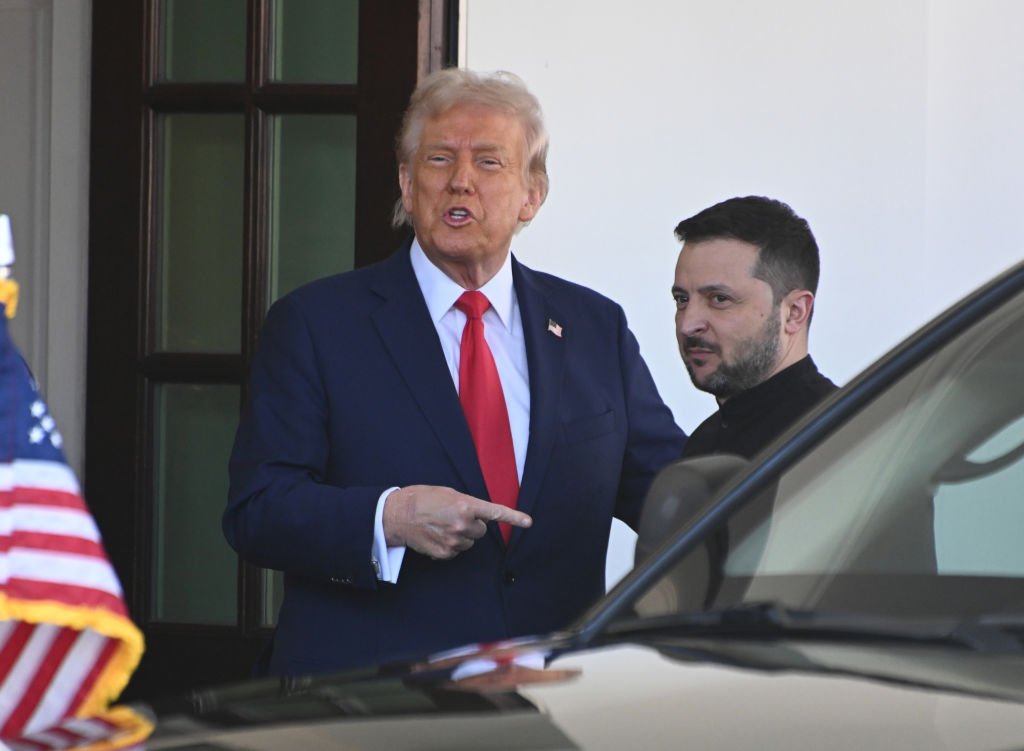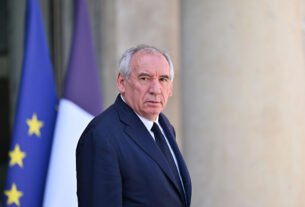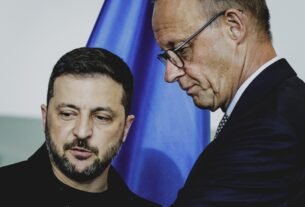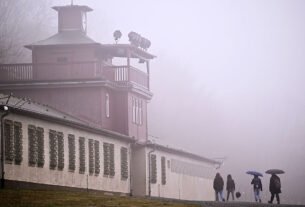European leaders head into a Trump-Zelenskyy Oval Office stand-off on Monday fearing pressure on Kyiv, and scrambling to shield Kyiv from a Trump-Putin deal.
The burst of White House diplomacy comes just days after the US-hosted Alaska talks with Russia on ending the war in Ukraine, where Vladimir Putin was welcomed with a red-carpet ceremony, but no signs of an imminent ceasefire emerged.
As Trump and Zelenskyy will meet at 7 pm European time for a heavily choreographed encounter, EU diplomats have expressed concerns that Trump might try to pressure Zelenskyy into concessions favourable to Russia. The Ukrainian leader is widely expected to reject the Alaska talking points and provide a European-backed counteroffer to Trump.
He will huddle first with a group of European leaders invited by Kyiv as a supporting cast. This includes British Prime Minister Keir Starmer, French President Emmanuel Macron, German Chancellor Friedrich Merz, Italian Prime Minister Giorgia Meloni, Finnish President Alexander Stubb, NATO Secretary General Mark Rutte, and European Commission President Ursula von der Leyen.
Those leaders will later join Trump and Zelenskyy to convince the US president that Moscow’s maximalist demands are schemes to continue the war. After the huddle, they will join Zelenskyy and Trump in a trilateral session.
Confrontation concerns
European officials can’t shake memories of Zelenskyy’s last Oval Office exchange, when Trump and his administration officials berated their Ukrainian guest for his lack of gratitude and, bizarrely, his choice of attire.
And this time, officials are determined to avoid a repeat. Their primary objective, they say, is to shield Zelenskyy from pressure to make concessions to Russia, though what European leaders can actually deliver remains uncertain. With meetings capped at around an hour apiece, there’s only so much damage control they can do.
The bigger unknown is Washington itself. What, exactly, is Trump prepared to offer Kyiv and what terms, if any, would Moscow be willing to stomach?
Like before, Putin, standing alongside Trump in Alaska, reprised his talking points about the so-called “root causes” of the war to justify the violation of international law while pressing for maximalist demands.
The summit only left European officials fretting that Trump might seek a deal with Putin, potentially involving territorial concessions.
Those worries intensified over the weekend when Steve Witkoff, Trump’s special envoy and chief go-between with the Kremlin, hinted that Russia was ready to enshrine its pledge not to invade other countries or breach their sovereignty.
But as often before, what a pledge from Putin is worth is anyone’s guess.
Security guarantees
Europe’s leaders are expected to focus on one thing: what security guarantees they, alongside America, can extend to Kyiv to make any agreement with Moscow stick.
A ‘Coalition of the Willing’ met on Sunday after Trump reportedly told European leaders a day earlier that America could support such guarantees, so long as NATO stays out of it – a long-standing Russian demand.
“Europe might not be able to offer Ukraine airtight security guarantees without the US,” Lithuania’s former Foreign Minister, Gabrielius Landsbergis, noted before the talks.
“But we can take frozen assets, close the skies and bring Ukraine into the EU, if we want. That’s what ‘standing with Ukraine’ means – and I think Putin would start thinking twice.”
Before the White House talks, leaders of the Nordic-Baltic Eight – Denmark, Estonia, Finland, Iceland, Latvia, Lithuania, Norway, and Sweden – said in a joint statement that “achieving a just and lasting peace requires a ceasefire and credible security guarantees for Ukraine.”
Still, the European delegation arriving in Washington on Monday is thin on eastern representation. Solely Finland’s Stubb will speak for the Nordic-Baltic-Eastern camp, amid the gaping absence of Poland’s Prime Minister Donald Tusk.
While Warsaw has been part of the coalition, it seemed to have been largely sidelined from the Washington talks, yet it remains one of the largest political and financial supporters of Ukraine.
Polish officials across the country’s political spectrum have been adamant that their country would not be willing to send troops to Ukraine, despite its active political involvement in the coalition.
Germany, too, has indicated it might likely be too stretched to provide troops to secure a potential future ceasefire. Foreign Minister Johann Wadephul on the podcast Table.Today rejected the idea, pointing towards a country’s brigade stationed in Lithuania as Berlin’s key contribution.
“Doing that [maintaining the brigade] and additionally stationing troops in Ukraine would probably overwhelm us,” he said.
Charles Szumski and Nick Alipour contributed reporting.
(mm)





